Vanderbilt Institute For Infection Immunology And Inflammation
-
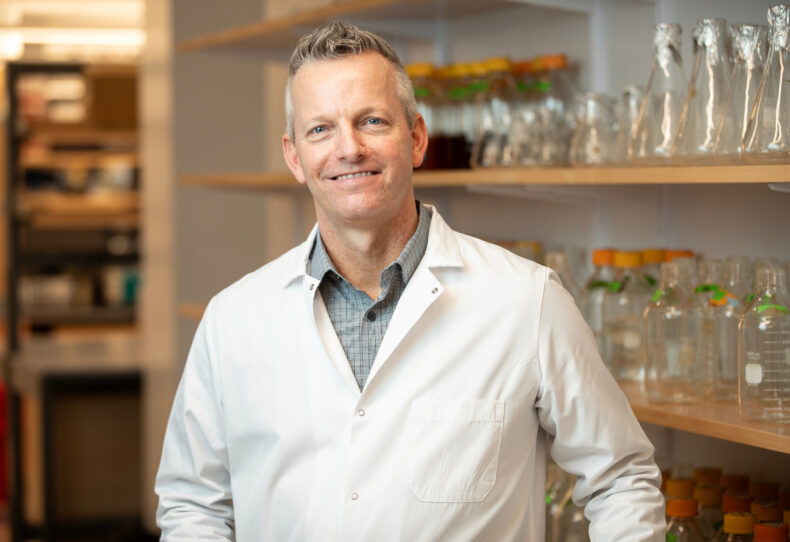
Eric Skaar: Exploring the connection between nutrient access and infection
When bacterial pathogens enter our bodies, they’ve got one goal—hunt for food to multiply. And during the process, they make us sick. Eric Skaar, Ernest W. Goodpasture Professor of Pathology and director of the Vanderbilt Institute for Infection, Immunology and Inflammation, is uncovering how pathogens compete with healthy microbes for essential nutrients. Read MoreAug 6, 2025
-
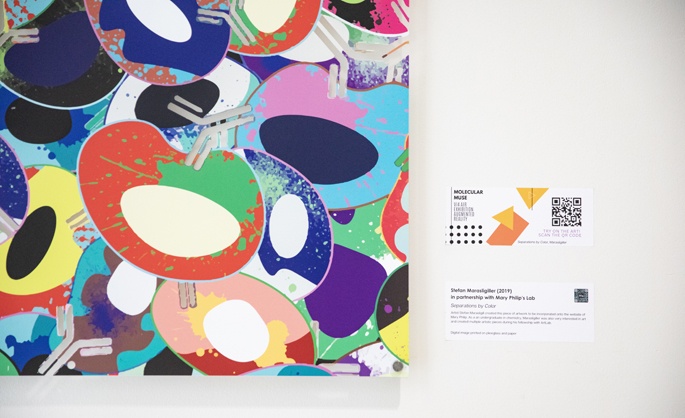
‘Molecular Muse’ exhibit features Artist-in-Residence program’s science-inspired art
The “Molecular Muse” art exhibit on display in Light Hall is a sampling of pieces from the Vanderbilt Institute for Infection, Immunology, and Inflammation Artist-in-Residence (VI4-AiR) program, which brings together scientists and artists to create and promote art as a visual science communication tool. Read MoreJan 16, 2024
-

Five students receive 2023 Graduate Leadership Anchor Awards
he awards identify and honor the hard work and leadership of graduate students at Vanderbilt, recognizing graduate student leaders on a school-wide level. Awards given this year included a service award, mentorship award, departmental leadership award, research award and best overall award. Read MoreAug 4, 2023
-
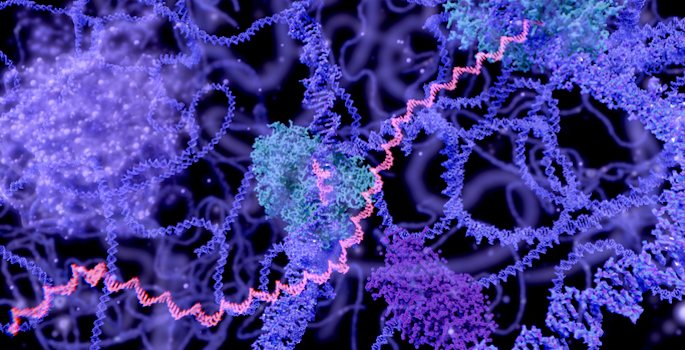
Study details RNA editing in virus-infected cancer cells
Vanderbilt researchers detail the landscape of RNA editing — a form of RNA modification — in primary effusion lymphoma cells during Kaposi’s sarcoma-associated herpesvirus infection and identify an edited viral microRNA that is critical for infection. Read MoreApr 20, 2023
-
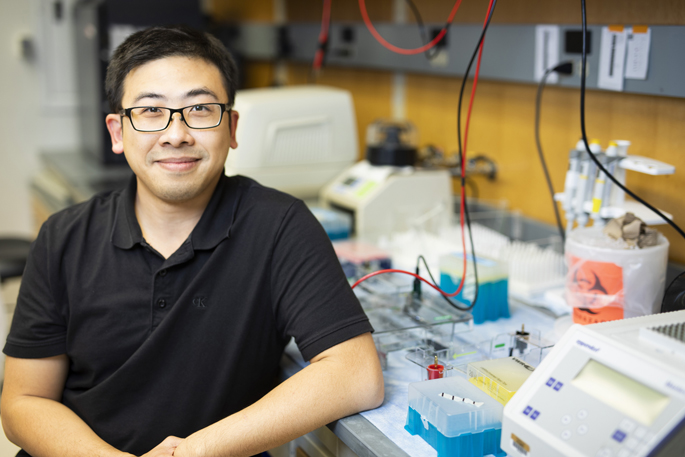
Mathers Foundation award supports study of bacterial physiology
Vanderbilt's Wenhan Zhu, PhD, has received a three-year award from the G. Harold and Leila Y. Mathers Foundation to support his research that aims to answer a fundamental question about bacterial physiology and engineer probiotics to improve gut inflammatory diseases. Read MoreMar 23, 2023
-
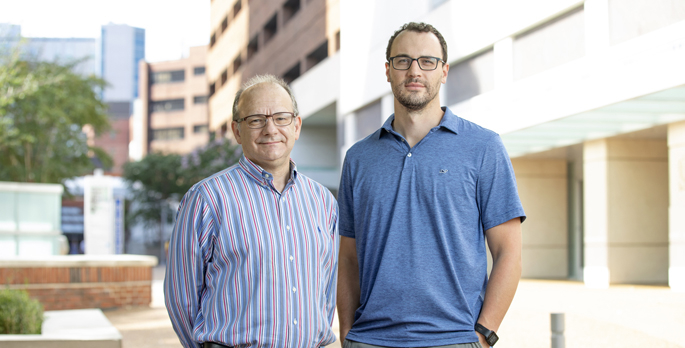
Study identifies key player in T cell “education”
New Vanderbilt research could inform therapeutic strategies for enhancing thymic function when desired — such as during aging, recovery from radiation therapy or chemotherapy, or other conditions that reduce T cell output. Read MoreSep 1, 2022
-
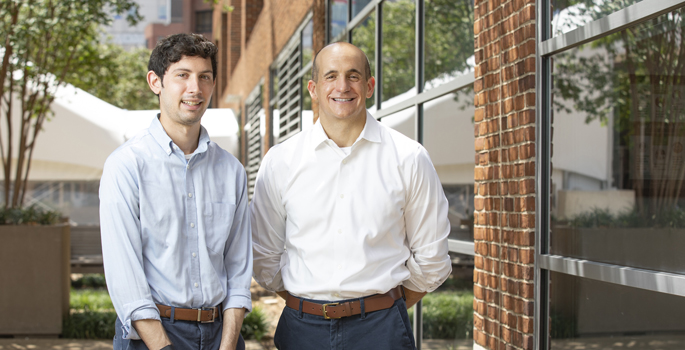
Vanderbilt researchers discover how gut inflammation leads to bone loss
Gastrointestinal inflammation, such as occurs in inflammatory bowel disease, triggers the expansion of a population of “bone-eating” cells, leading to bone loss. Read MoreAug 25, 2022
-

Study describes how E. coli co-opts cells, causes recurrent UTIs
Researchers at Vanderbilt University Medical Center have discovered why the uropathogenic bacterium E. coli, the leading cause of urinary tract infections, is so tenacious; their findings could lead to new ways to prevent recurrent UTIs. Read MoreAug 25, 2022
-

Study identifies first cellular “chaperone” for zinc, sheds light on worldwide public health problem of zinc deficiency
A team led by Vanderbilt researchers has described and characterized the first zinc metallochaperone: a protein that puts zinc into other “client” proteins. Read MoreMay 17, 2022
-
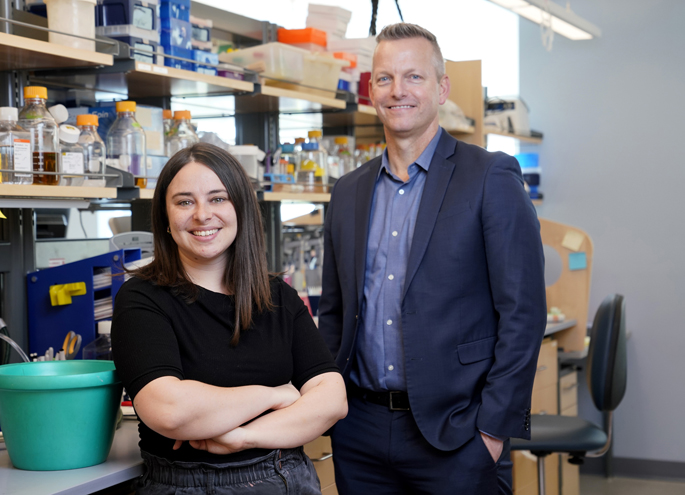
VUMC team discovers how bacterial pathogen survives without water
Vanderbilt researchers are studying a bacterial pathogen that can survive on hospital surfaces — without water — for months, an ability that has helped it become a leading cause of hospital-acquired infections. Read MoreMay 5, 2022
-
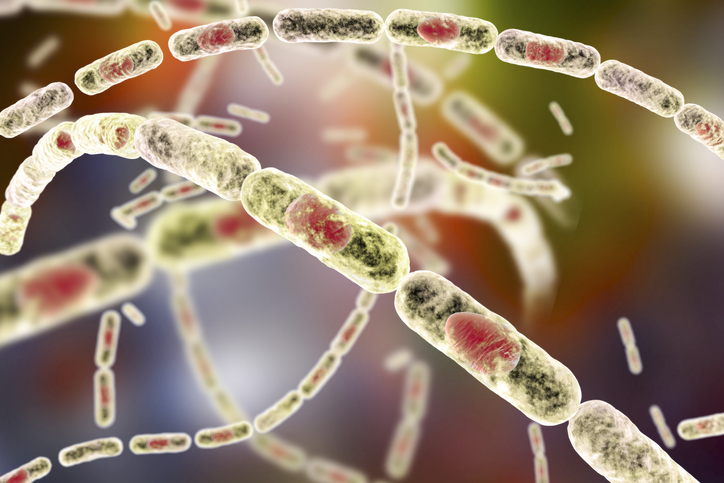
Study advances understanding of bacterial bioterrorism agent
Vanderbilt researchers have identified a critical regulatory factor in the bacterium that causes the disease anthrax and has been used as a biological weapon. Read MoreApr 7, 2022
-

Impaired neutrophils in autoimmunity
Vanderbilt researchers help answer the question of why patients with autoimmune diseases like lupus are more susceptible to bacterial infections: their neutrophils have impaired antibacterial activity. Read MoreJan 27, 2022
-
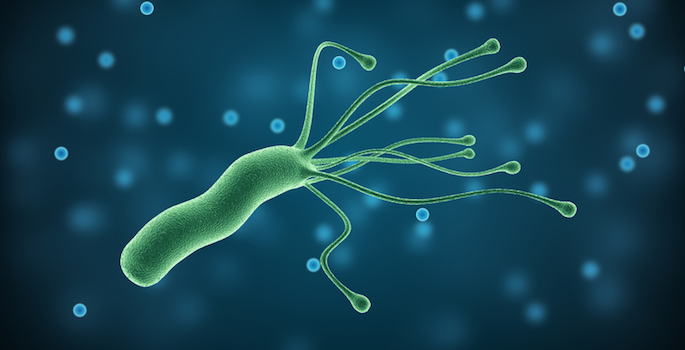
H. pylori, lipid loss and stomach cancer
H. pylori infection — a strong risk factor for stomach cancer — changes the composition of stomach lipids, which could offer new biomarkers for detecting premalignant changes, Vanderbilt researchers discovered. Read MoreJan 17, 2022
-
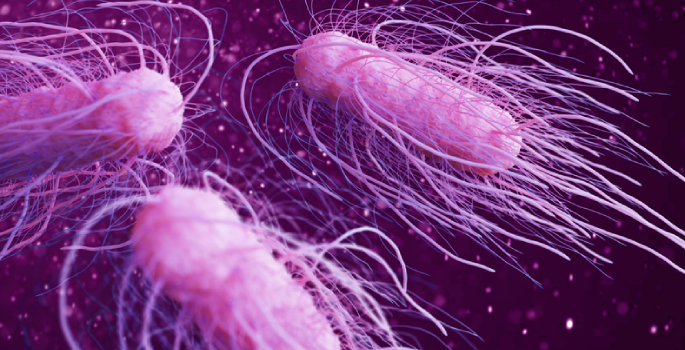
Salmonella overcomes host resistance
The invading pathogen Salmonella, a common cause of food poisoning, can change its metabolism to overcome host resistance to its colonization. Read MoreJan 13, 2022
-

VUMC postdoctoral scientist named HHMI Hanna Gray Fellow
Valeria Reyes Ruiz, PhD, a postdoctoral fellow in the Department of Pathology, Microbiology and Immunology, has been selected as a 2020 Hanna Gray Fellow by the Howard Hughes Medical Institute (HHMI). Read MoreFeb 18, 2021
-

Grant helps expand VI4’s Artist-in-Residence program
An innovative Vanderbilt program that brings together scientists and artists with the shared goal of scientific communication is set to expand with support from a three-year grant from the Burroughs Wellcome Fund. Read MoreOct 29, 2020
-
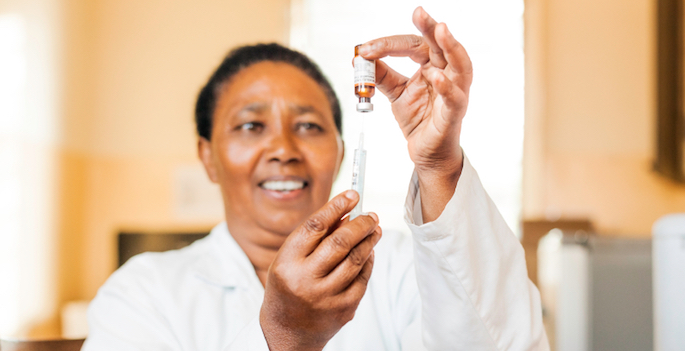
Rational vaccine design
Understanding immunity generated by smallpox vaccine may hold lessons for COVID-19 vaccine development. Read MoreSep 22, 2020
-
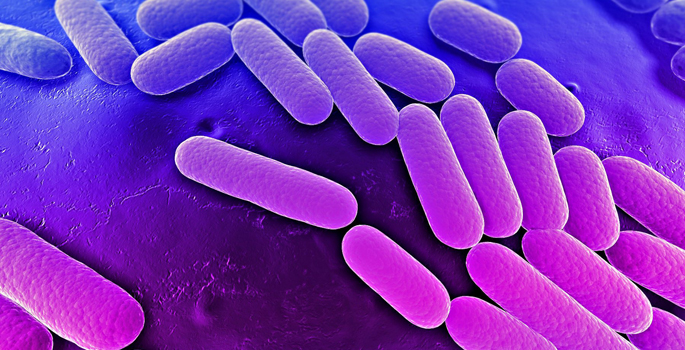
Probing pathogen antibiotic resistance
Understanding how bacteria evolve resistance to antibiotics and host stresses could guide the development of more effective antimicrobial therapeutics. Read MoreSep 17, 2020
-

“Nur” target may aid arthritis treatment
Vanderbilt immunologists have discovered that the protein Nur77 is part of a control mechanism that guards against autoimmunity in natural killer T cells. Read MoreJul 13, 2020
-

Recurrent UTIs linked to hidden reservoir
Bacterial invasion of vaginal cells sets up a protective niche and a reservoir for recurrent urinary tract infections, Vanderbilt researchers demonstrated. Read MoreJul 9, 2020